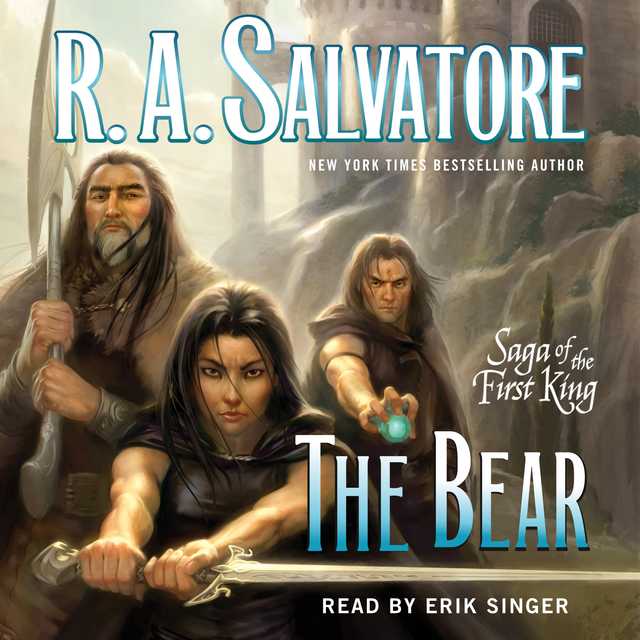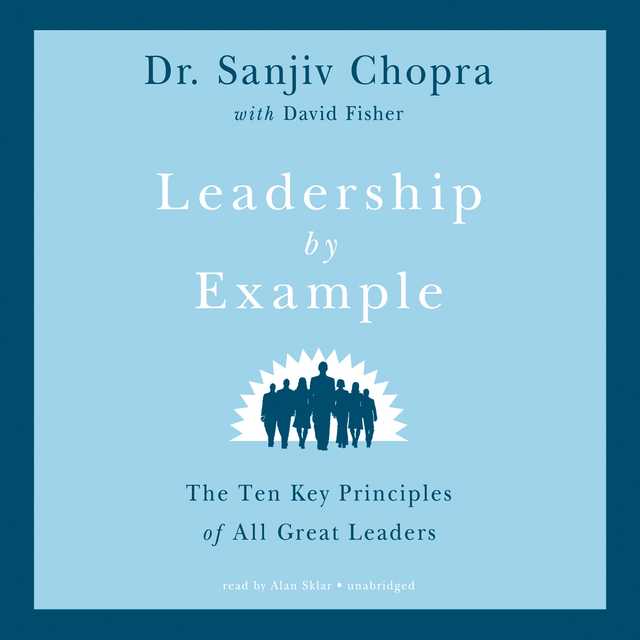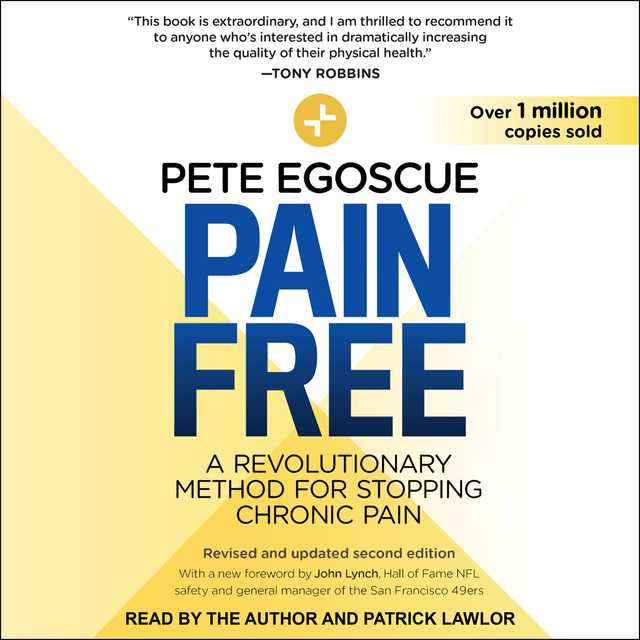The Problem of Pain Audiobook Summary
In The Problem of Pain, C.S. Lewis, one of the most renowned Christian authors and thinkers, examines a universally applicable question within the human condition: “If God is good and all-powerful, why does he allow his creatures to suffer pain?” With his signature wealth of compassion and insight, C.S. Lewis offers answers to these crucial questions and shares his hope and wisdom to help heal a world hungering for a true understanding of human nature.
Other Top Audiobooks
The Problem of Pain Audiobook Narrator
James Simmons is the narrator of The Problem of Pain audiobook that was written by C. S. Lewis
James Simmons has worked extensively on stage and television and can be seen in the film version of Henry V.
About the Author(s) of The Problem of Pain
C. S. Lewis is the author of The Problem of Pain
More From the Same
- Publisher : HarperAudio
- Abraham
- American Gods [TV Tie-In]
- Dead Ringer
- House of Sand and Fog
- Prey
The Problem of Pain Full Details
| Narrator | James Simmons |
| Length | 3 hours 50 minutes |
| Author | C. S. Lewis |
| Publisher | HarperAudio |
| Release date | August 21, 2012 |
| ISBN | 9780062243751 |
Additional info
The publisher of the The Problem of Pain is HarperAudio. The imprint is HarperAudio. It is supplied by HarperAudio. The ISBN-13 is 9780062243751.
Global Availability
This book is only available in the United States.
Goodreads Reviews
Allison
February 17, 2023
UPDATED REVIEW: Still just as wonderful; though I do disagree with a few points - namely that Lewis seemed to believe in theistic evolution: which is a bunkum. But that just goes to show that no one gets everything right. And, honestly, I believe if Lewis had lived in our time, when science has finally begun to catch up to the Truth, he would have accepted the irrefutability of a young Earth, and a literal Genesis. ORIGINAL REVIEW. We’ve probably all wondered this or asked the question at least once in our lives. Why does pain exist? Why do bad things happen to good people? Why would a loving God allow us to experience pain in any capacity?By the end of this book, any who read it ought to be not only enlightenment but, more importantly, humbled.If, by some chance, this book doesn’t answer the question sufficiently for you, it should encourage you to surrender our questions, release our puffed up assumptions, and hand over our questions and confusion to a Mighty God.As always, it is difficult if not impossible for me to accurately relate the beneficial genius of Lewis’s non-fiction work. You’ll have to read it for yourself as I leave you yet again with a few tantalizing quotes. “We can ignore even pleasure. But pain insists upon being attended to. God whispers to us in our pleasures, speaks in our conscience, but shouts in our pains: it is his megaphone to rouse a deaf world.” “Love may, indeed, love the beloved when her beauty is lost: but not because it is lost. Love may forgive all infirmities and love still in spite of them: but Love cannot cease to will their removal. Love is more sensitive than hatred itself to every blemish in the beloved… Of all powers he forgives most, but he condones least: he is pleased with little, but demands all.” “A man can no more diminish God’s glory by refusing to worship Him than a lunatic can put out the sun by scribbling the word ‘darkness’ on the walls of his cell.”
J. Aleksandr
August 18, 2021
I wasn't much for reading nonfiction voluntarily in my youth. The Problem of Pain was the second installment of Lewis' nonfiction I chose of my own free will (after The Abolition of Man, only because of the preface to That Hideous Strength) and my first propositional apologetics book by any author. It therefore probably wields outsized influence on my opinions, being formative; but I still think The Problem of Pain is Lewis' best propositional apologetics book (I think his essays are generally stronger than his books), and ranks among the best-in-genre.Baldly titled, the book considers how to square the obvious realities of human suffering, evil, and moral imperfections in the natural world (including animal suffering), plus the asserted existence of Hell, with the asserted existence of a benevolent divine Creator. It is not a book designed to comfort readers, nor to provide definitive or authoritative answers to these questions. Rather, it presents well-considered, well-researched, morally- and intellectually-satisfying hypotheses that, if true, resolve the apparent contradiction between Christian belief in the Creator's goodness and our lived reality of the Creation's pain. If that paradox troubles you, this book may help -- even if you don't find it fully convincing. This book, and all books of its kind, do their best work by helping us clamber out of the narrow spaces inside our own heads, where shades of error in our education or the solitary spiral of our inner puzzlings can trap us, and into a wider world of hope. I don't mean mere speculation; I mean the realization, which strikes me often, that many thousands of people much smarter than me have considered these problems deeply, and concluded that certain beliefs are reasonable, even after rigorous examination. I may not find all the right answers, but the search is not meaningless; and I am not alone.
Toe
May 05, 2018
Apology for the existence of pain and suffering. Lewis's comfortable, easy style speaks to me in most all of his books. This is no exception.Memorable quotes:"Love, in its own nature, demands the perfecting of the beloved; that the mere 'kindness' which tolerates anything except suffering in its object is, in that respect, at the opposite pole from Love. When we fall in love with a woman, do we cease to care whether she is clean or dirty, fair or foul? Do we not rather then first begin to care? Does any woman regard it as a sign of love in a man that he neither knows nor cares how she is looking? Love may, indeed, love the beloved when her beauty is lost: but not because it is lost. Love may forgive all infirmities and love still in spite of them: but Love cannot cease to will their removal. Love is more sensitive than hatred itself to every blemish in the beloved..." - C.S. Lewis, The Problem of Pain"Every race that comes into being in any part of the universe is doomed; for the universe, they tell us, is running down, and will sometime be a uniform infinity of homogeneous matter at low temperature. All stories will come to nothing: all life will turn out in the end to have been a transitory and senseless contortion upon the idiotic face of infinite matter." - C.S. Lewis, The Problem of Pain
Kjersti
January 16, 2011
I absolutely loved this book. I laughed, I blurted out loud "HA!"s between classes and generally forgot about time and place. It's very, VERY good book. My only concern with this review is on my side; I had a goal to get through it in three days, which I did. Thus, there were some parts I read through without the attention I probably should have devoted to it. I don't usually like writing reviews where the fault is with me; but alas, here I am.As for content, CS Lewis has, as always, very well thought-out arguments and a logical approach to his content. There were a couple minor instances where I disagreed with ever-so-slightly, but I had no concerns even close to major. If you want to compare this to his other works, I find it's slightly weaker than his later books.. But that does in no way mean this is poor craftmanship. Surely, to improve with time is a positive thing, and you cannot hold that against him. All in all, I loved it and I'd recommend it to anyone who doesn't mind a theoretical approach to things.
Jon
November 20, 2016
What is the purpose of pain? C.S. Lewis examines this question and gives his interpretation of what pain tries to teach us.
W.R.
September 07, 2022
4.5 starsdo not always agree with what cs lewis thinks about The Thing under discussion, but do wholeheartedly love the way he makes me THINK about The Thingthis one has also turned out to be unexpectedly useful, thematically speaking, for the next series i'm writingread as audiobook
Emily
September 17, 2020
In this book C S Lewis does an excellent job of describing pain and human suffering in the midst of trying to understand how God, Heaven and Hell fit into the picture. “But pain insists upon being attended to. God whispers to us in our pleasures, speaks in our conscience, but shouts in our pain: it is His megaphone to rouse a dead world.” Taken from Chapter 6. Definitely read this book for a deeper understanding of Divine Omnipotence and human pain. I rate it five stars, but I also recognize I have a bias and huge regard for every C S Lewis book I’ve read.
Grace
February 16, 2017
There's something incredibly comforting about C.S. Lewis's writing style. He explains things well and clearly, but on the points he's unsure about he's honest. (Actually he's always honest, blazingly so, in a way that's doubly endearing and challenging, but perhaps that's beside the point). Though it's technically a point-by-point defense of Christianity against the 'pain and suffering in the world proves the absence of a good god' argument, The Problem of Pain never seems like just a bit of apologetics. It's logical, but not without emotional weight, and even while attempting to prove the necessity of pain Lewis retains a great deal of sensitivity and compassion. The book is a conversation more than an argument, and a pretty jovial conversation at that. The clarity of each individual point, and the fluid way all the points came together into conclusion after conclusion, was staggering. Theology is a heady, mystifying subject at the best of times, and I'm eternally in love with how Lewis can somehow admit the mystery while making graspable what parts of it really are open to view. It was also balanced, incredibly so; justice was talked about and mercy never forgotten, free will was put forth as the necessity it is while the ultimate sovereignty of God constantly reinforced. There's a kind of high-flying joy and grounded solemness sandwiching the narrative, and the points where the joy and wonder of it all were brought into focus took my breath away. This is a beautiful, excellent book and I'm definitely going to be reading it more than once :)
Alex
November 10, 2021
A little book filled with wisdoms for theists and atheists alike (although mostly for theists). Here's a passage that more people should take to heart:By the goodness of God we mean nowadays almost exclusively His lovingness; and in this we may be right. And by Love, in this context, most of us mean kindness—the desire to see others than the self happy; not happy in this way or in that, but just happy. What would really satisfy us would be a God who said of anything we happened to like doing, ‘What does it matter so long as they are contented?’ We want, in fact, not so much a Father in Heaven as a grandfather in heaven—a senile benevolence who, as they say, ‘liked to see young people enjoying themselves’, and whose plan for the universe was simply that it might be truly said at the end of each day, ‘a good time was had by all’.If you're twenty-five and still envying the lab rat that starves to death because it has access to a pleasure-button, you might wanna read this, then read it again, then reconsider your personal philosophy. As Lewis argues, existence is not about nonsensical bliss, and love is not about selling opiates to your loved ones. It's just as much about kindness as it is about making them grow (which of course isn't the same as the "tough love" of parents and teachers that simply don't understand what compassion is).Lewis also shares his ideas on hell, the fall, animal suffering, omnipotence, free will and many other topics. At least to me as a layperson, his theology always seemed quite sensible and thoughtful. His excellent reputation as an accesible Christian writer seems well deserved.
Samantha
November 12, 2021
Lewis does not disappoint! This book was not as mind-bogglingly amazing as some of his other non-fiction, perhaps because I have had excellent catechists who love Lewis and who introduced me to the ideas that he proposes earlier in my life. But it was still a really good, solid base work on suffering!Some things I found especially interesting:-His careful point that just because God can bring about good from evil doesn't mean we should cause suffering.-The points that he makes about the way God uses suffering for good in peoples' lives, to recall them to Him. That meshes really well with one of my WIPs, and I'll definitely be referring back to it as I start the 2nd draft, eventually!-The section on animal suffering. I'm not sure if I entirely agree with it, but I did find it fascinating.Overall, would recommend! 4 stars!
Frequently asked questions
Listening to audiobooks not only easy, it is also very convenient. You can listen to audiobooks on almost every device. From your laptop to your smart phone or even a smart speaker like Apple HomePod or even Alexa. Here’s how you can get started listening to audiobooks.
- 1. Download your favorite audiobook app such as Speechify.
- 2. Sign up for an account.
- 3. Browse the library for the best audiobooks and select the first one for free
- 4. Download the audiobook file to your device
- 5. Open the Speechify audiobook app and select the audiobook you want to listen to.
- 6. Adjust the playback speed and other settings to your preference.
- 7. Press play and enjoy!
While you can listen to the bestsellers on almost any device, and preferences may vary, generally smart phones are offer the most convenience factor. You could be working out, grocery shopping, or even watching your dog in the dog park on a Saturday morning.
However, most audiobook apps work across multiple devices so you can pick up that riveting new Stephen King book you started at the dog park, back on your laptop when you get back home.
Speechify is one of the best apps for audiobooks. The pricing structure is the most competitive in the market and the app is easy to use. It features the best sellers and award winning authors. Listen to your favorite books or discover new ones and listen to real voice actors read to you. Getting started is easy, the first book is free.
Research showcasing the brain health benefits of reading on a regular basis is wide-ranging and undeniable. However, research comparing the benefits of reading vs listening is much more sparse. According to professor of psychology and author Dr. Kristen Willeumier, though, there is good reason to believe that the reading experience provided by audiobooks offers many of the same brain benefits as reading a physical book.
Audiobooks are recordings of books that are read aloud by a professional voice actor. The recordings are typically available for purchase and download in digital formats such as MP3, WMA, or AAC. They can also be streamed from online services like Speechify, Audible, AppleBooks, or Spotify.
You simply download the app onto your smart phone, create your account, and in Speechify, you can choose your first book, from our vast library of best-sellers and classics, to read for free.
Audiobooks, like real books can add up over time. Here’s where you can listen to audiobooks for free. Speechify let’s you read your first best seller for free. Apart from that, we have a vast selection of free audiobooks that you can enjoy. Get the same rich experience no matter if the book was free or not.
It depends. Yes, there are free audiobooks and paid audiobooks. Speechify offers a blend of both!
It varies. The easiest way depends on a few things. The app and service you use, which device, and platform. Speechify is the easiest way to listen to audiobooks. Downloading the app is quick. It is not a large app and does not eat up space on your iPhone or Android device.
Listening to audiobooks on your smart phone, with Speechify, is the easiest way to listen to audiobooks.






























